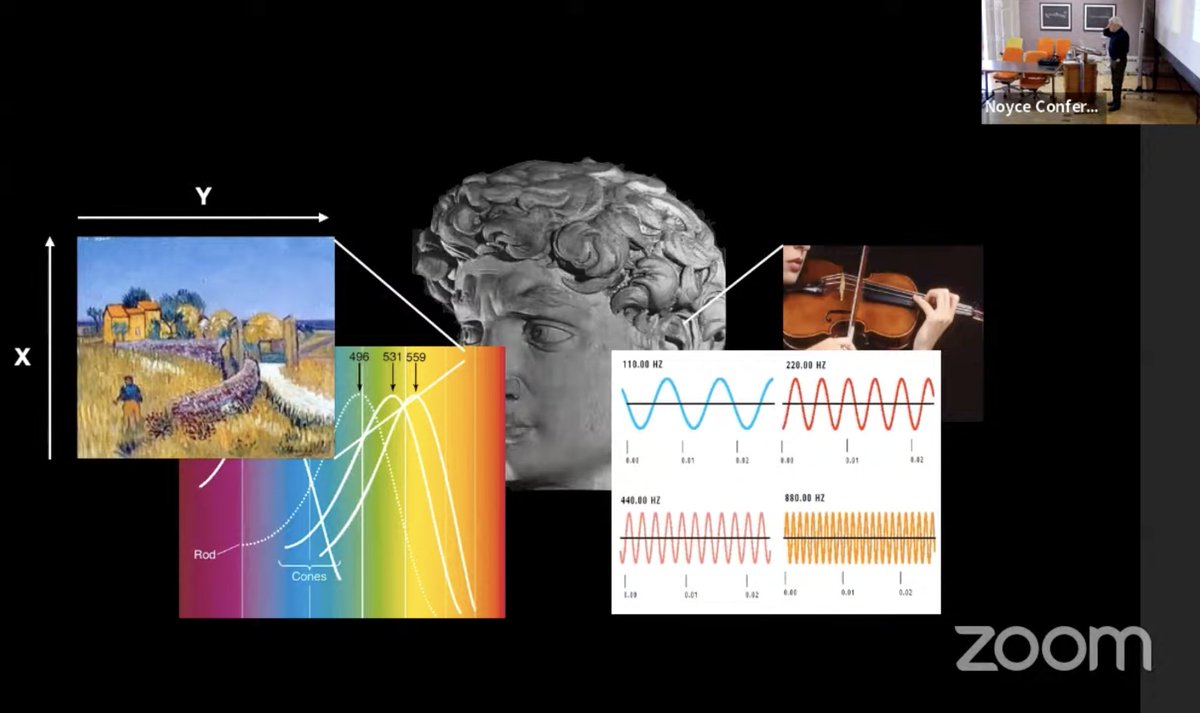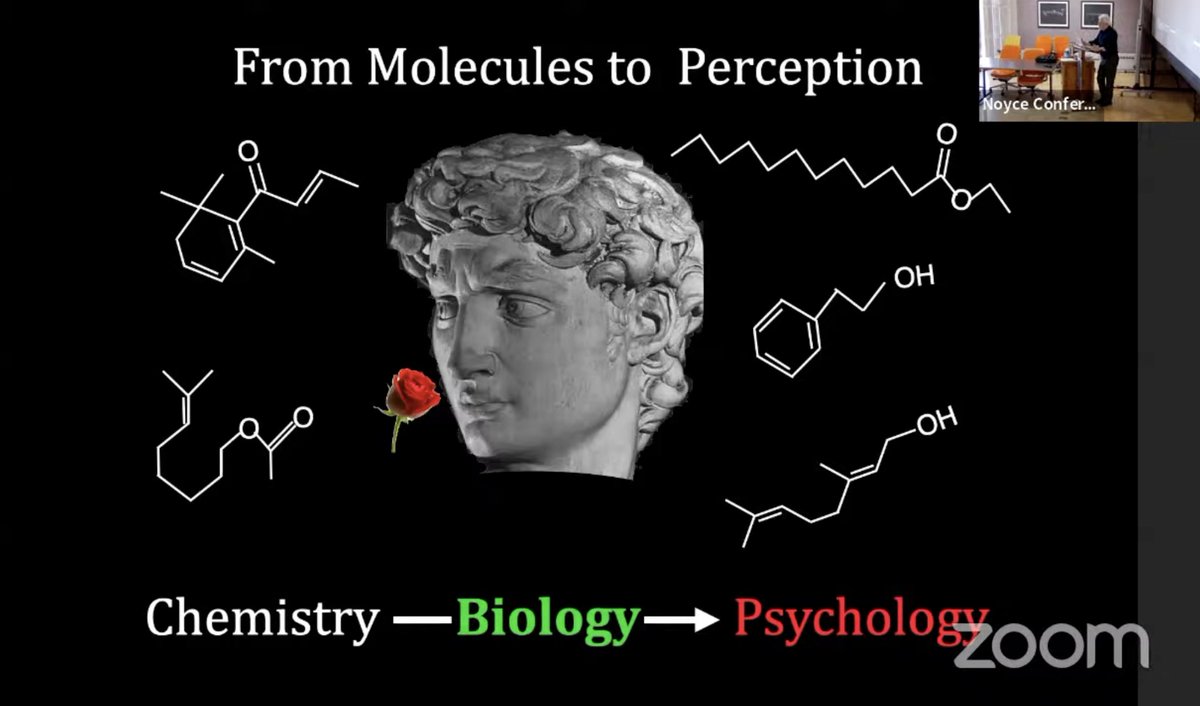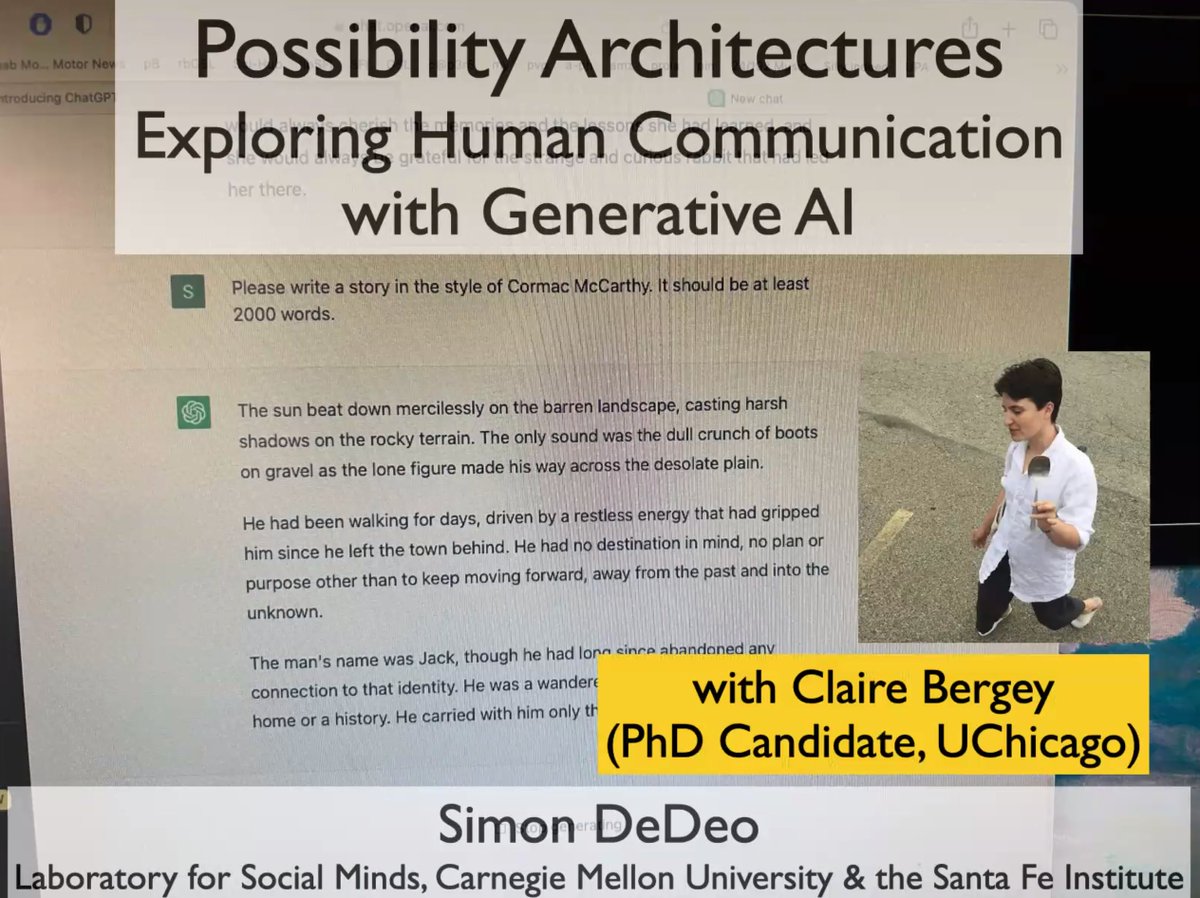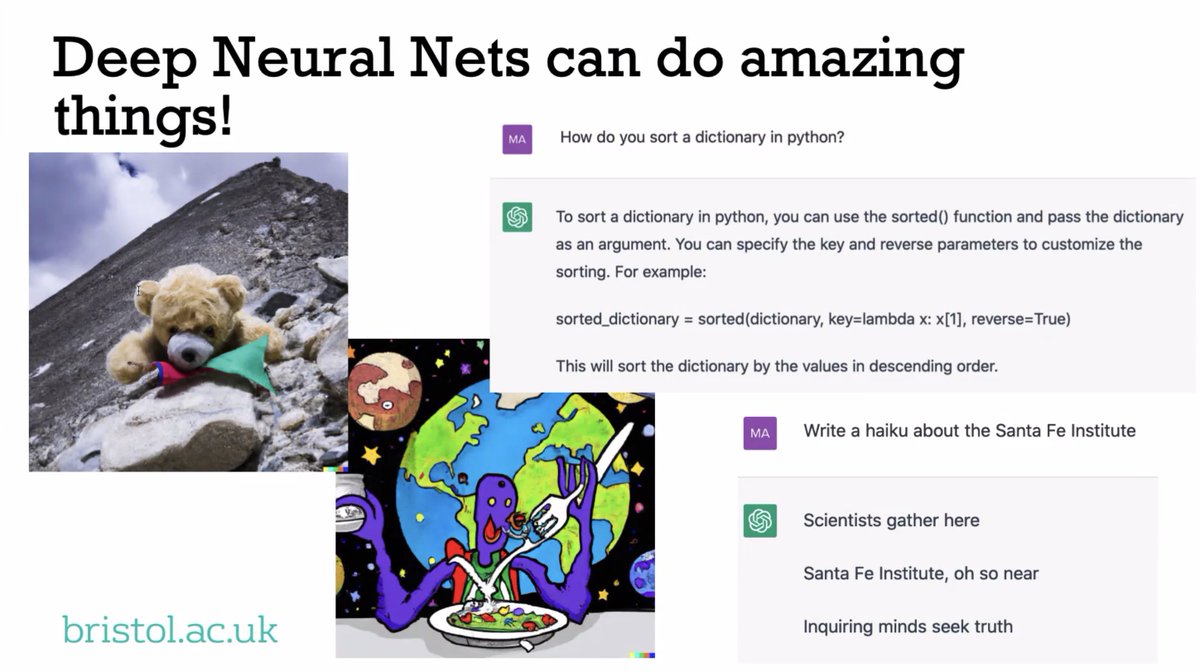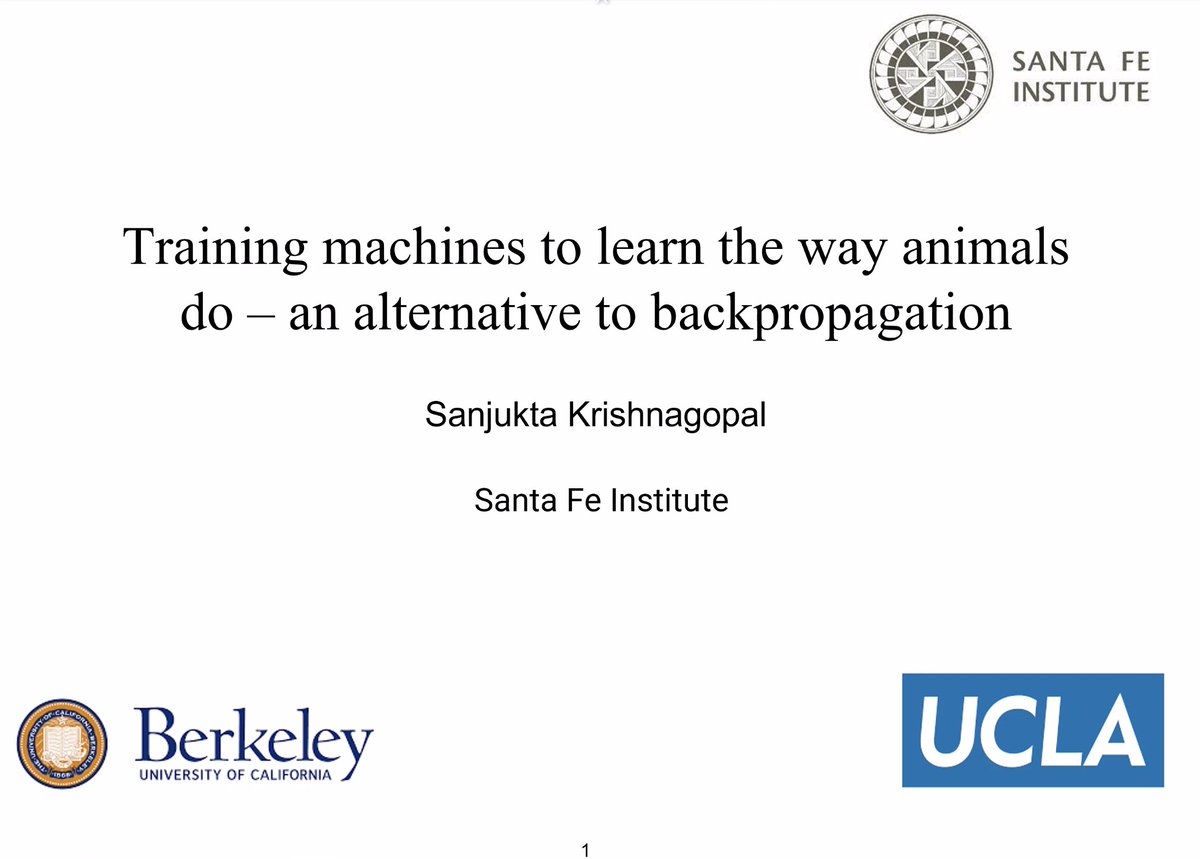It's good to be back! Follow this thread for the video stream & live coverage of tonight's first SFI Community Lecture at @TheLensic in two years, featuring @Sara_Imari on the #physics of living #systems.
And stay tuned for an extraordinary lineup of additional talks this year...

And stay tuned for an extraordinary lineup of additional talks this year...


Live stream starts in one minute!
SFI's @ChrisKempes introduces tonight's speaker @Sara_Imari (@sfiscience, @beyond_asu) by quoting #HaroldMorowitz about how, to find life beyond Earth, we must understand the *origins* of life... 

"I want to start with the first question [of these three], which is, 'How will we learn whether there are others 'like us'?"
- @Sara_Imari, who launches into her talk tonight by asking the crowd how many of us think we've made #FirstContact with #Aliens...

- @Sara_Imari, who launches into her talk tonight by asking the crowd how many of us think we've made #FirstContact with #Aliens...

"It's not necessarily a new phenomenon that we have been thinking about #Alien life, but we also have to ask ourselves what we're *projecting* about the current cultural moment on #AncientCivilizations."
- @Sara_Imari


- @Sara_Imari


"If you poll the general public, a random person is unlikely to know there was a possible sign of life on #Venus reported last year on the cover of the @NYTimes. Looking for a gas that life on Earth produces is not a sufficient explanatory framework for looking for life like us." 
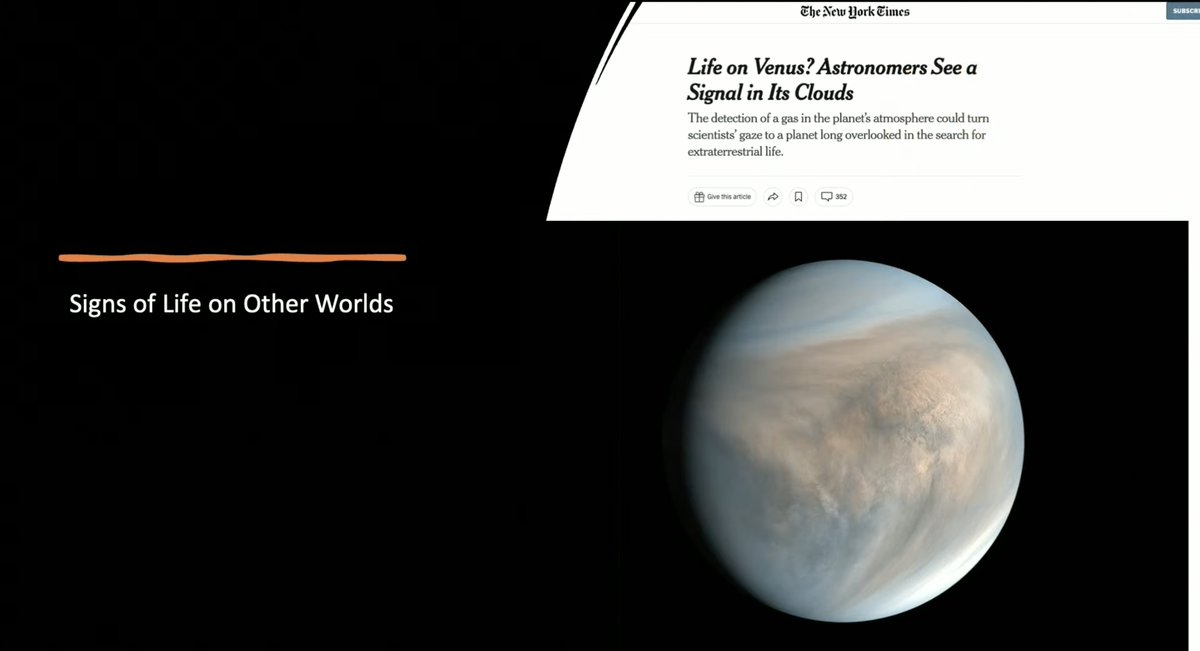
"The way we talk about #aliens right now is early, in its mythological phase of development. Aliens are modern #mythology."
- @Sara_Imari cites #BillMoyers & #JosephCampbell in exploring the basis of our thought about The Other & our place in the universe:

- @Sara_Imari cites #BillMoyers & #JosephCampbell in exploring the basis of our thought about The Other & our place in the universe:
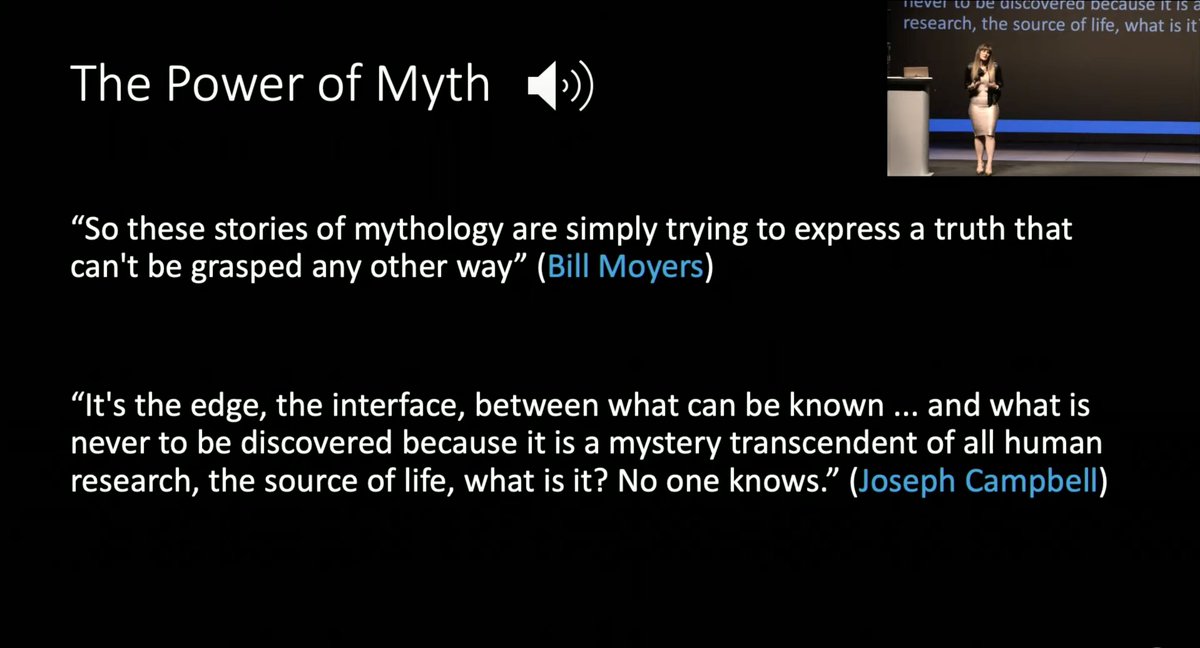
Ptolemaic epicycles were predictive, but not explanatory. "What was actually required to understand #planetary motion? That took the convergence of human thought across centuries and hundreds of miles."
@Sara_Imari (@Beyond_ASU) offers historical context:


@Sara_Imari (@Beyond_ASU) offers historical context:

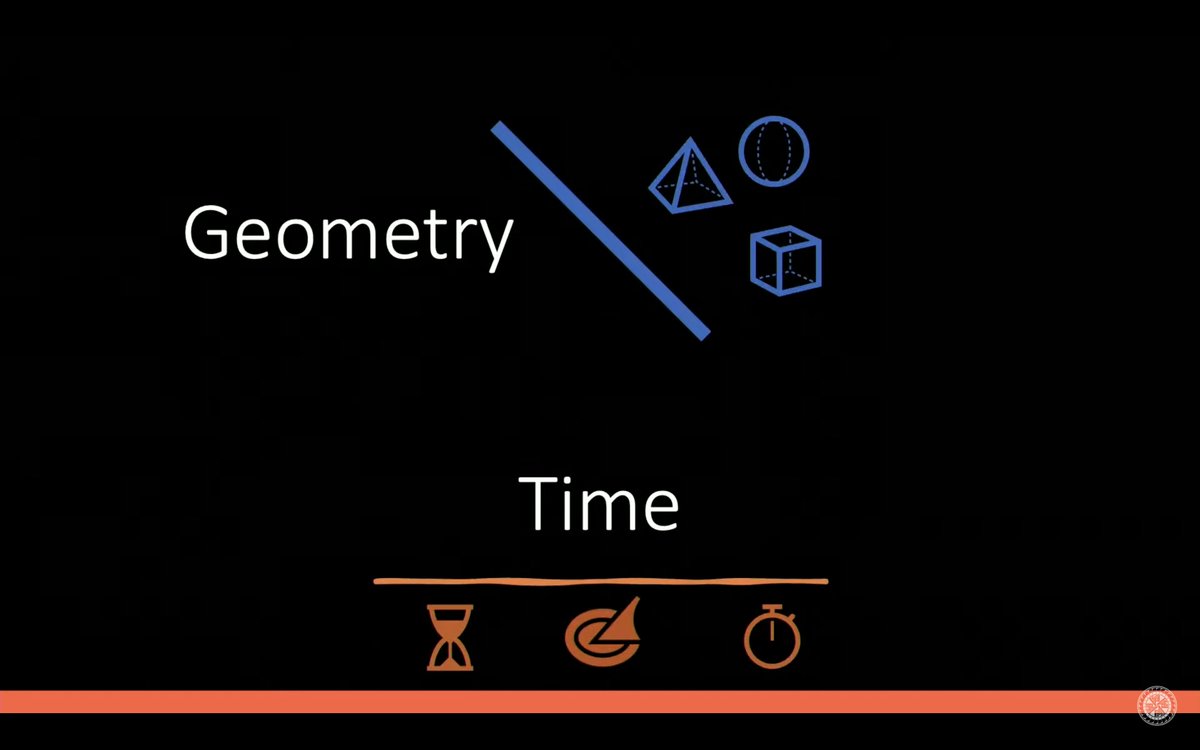
From Tycho Brahe to Isaac Newton to Albert Einstein, @Sara_Imari on how #science develops fundamental understanding and on the #unification of governing principles by (not-ever-isolated) intellects across space and time.
(In this process, #astrobiology is still VERY young...)

(In this process, #astrobiology is still VERY young...)
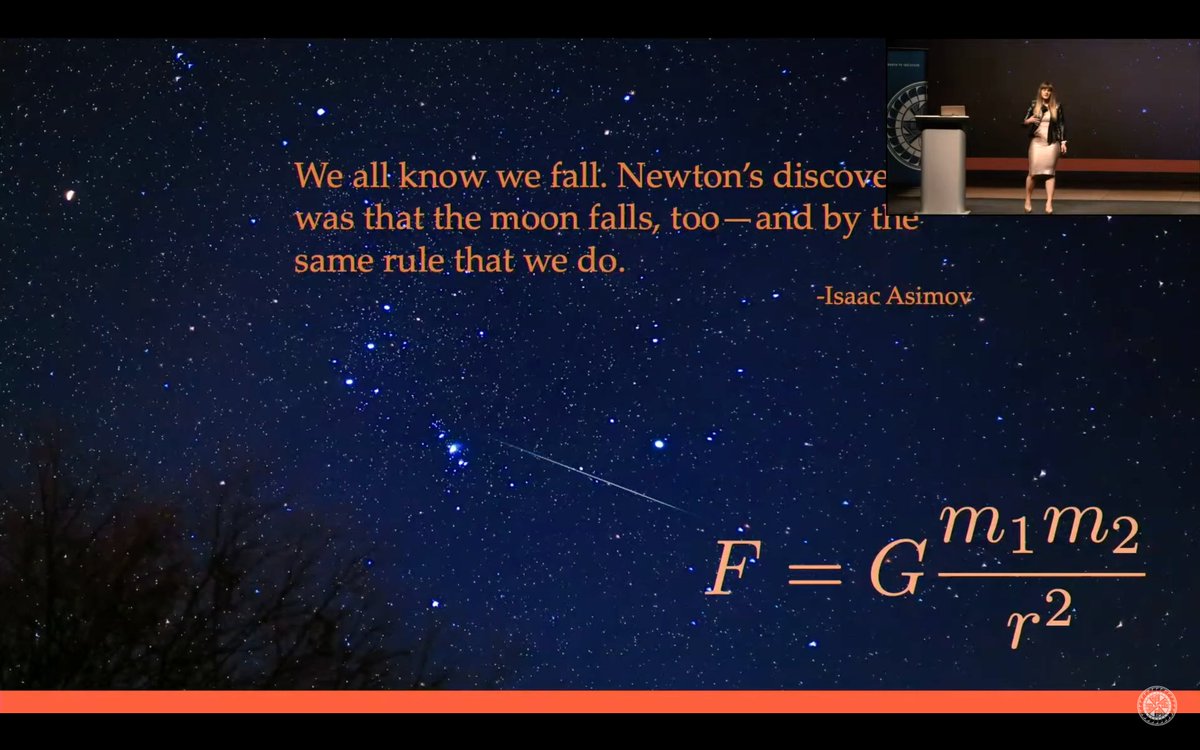

On @LIGO: "It took a hundred years to get here, millions of dollars, hundreds of brilliant people...to get to 'First Contact' of humanity with the phenomenon of gravitational waves." - @Sara_Imari
Theory precedes empirical confirmation.
Theory precedes empirical confirmation.

"We don't know what we are as beings in the universe, so we don't know what #aliens are going to be like."
Perhaps the #GreatFilter solution to the #FermiParadox is actually a "Great *Perceptual* Filter" — an #epistemic shortcoming, not a lack of aliens to be discovered.
Perhaps the #GreatFilter solution to the #FermiParadox is actually a "Great *Perceptual* Filter" — an #epistemic shortcoming, not a lack of aliens to be discovered.
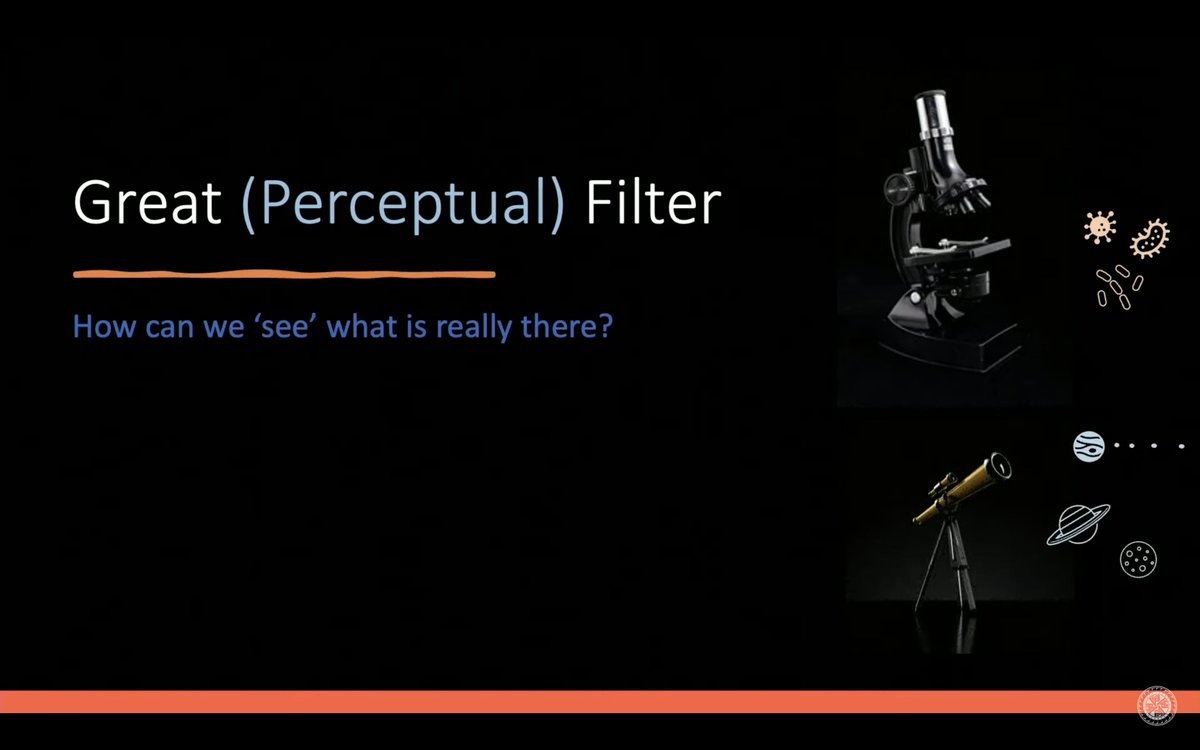
"I'm a mom of two but when I have the luxury of asking #DeepQuestions, this is my favorite, asked by Erwin #Schrödinger: 'What is Life?' He asked if we can explain life with the properties of physics & chemistry. His answer was, 'We can't.'"
- @Sara_Imari

- @Sara_Imari
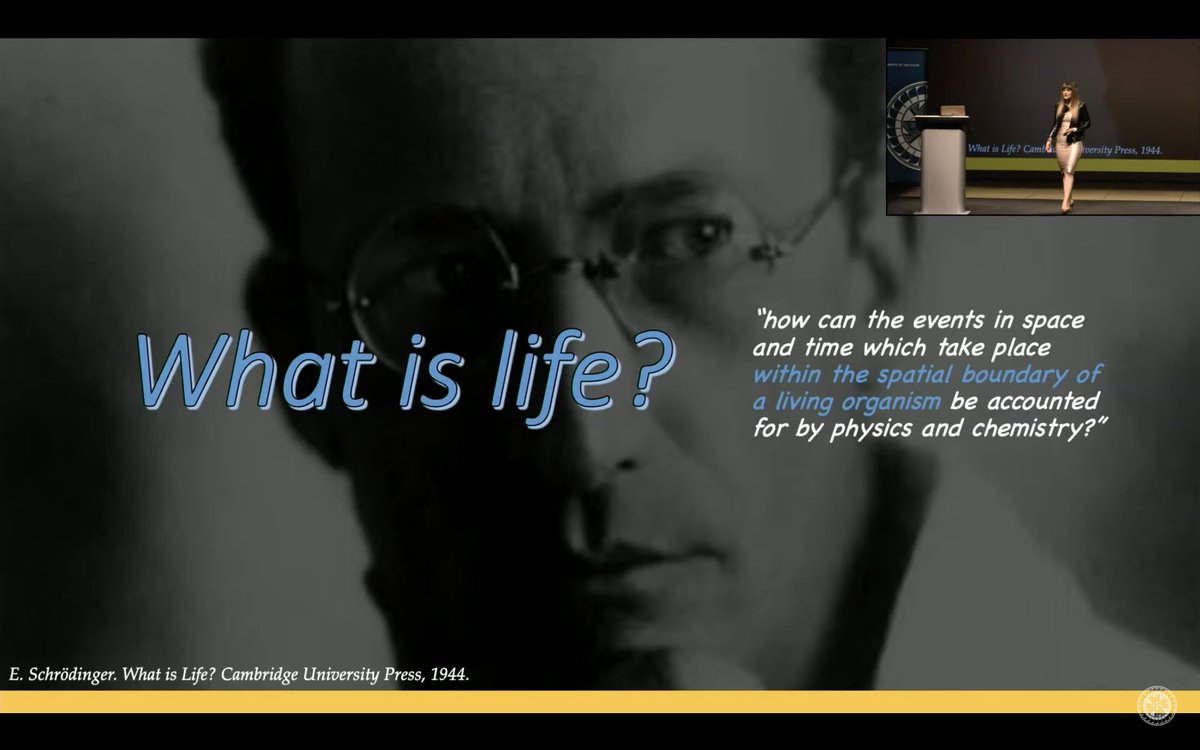
"It's fine to say there's no *conflict* between life and the laws of #physics. But my point is, it's not *explained* by them either."
- @Sara_Imari riffs on #causality, #explanation, #agency, and the writing of SFI External Professor @danieldennett

- @Sara_Imari riffs on #causality, #explanation, #agency, and the writing of SFI External Professor @danieldennett
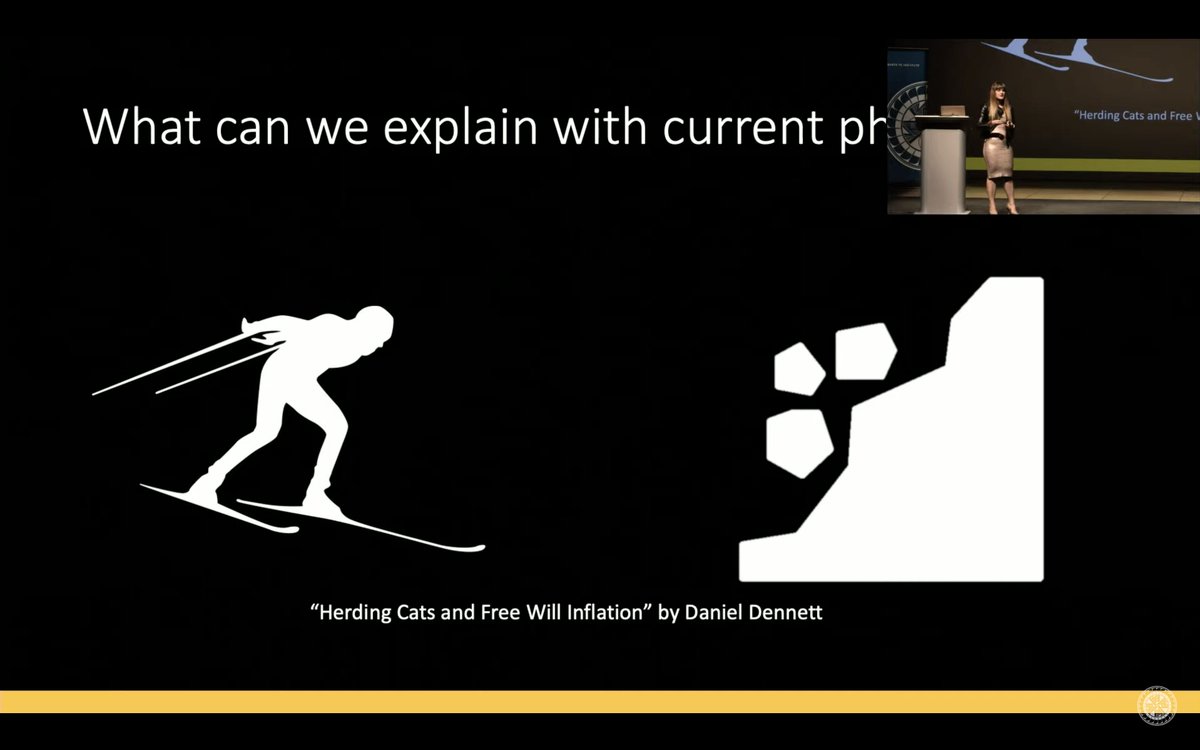
"When we think about the history of physics, these grand fundamental theories, we've gone through several unifications over the history of the progression of this body of knowledge."
- @Sara_Imari
Coming soon: the unification of info/computation & matter (speaking speculatively)
- @Sara_Imari
Coming soon: the unification of info/computation & matter (speaking speculatively)
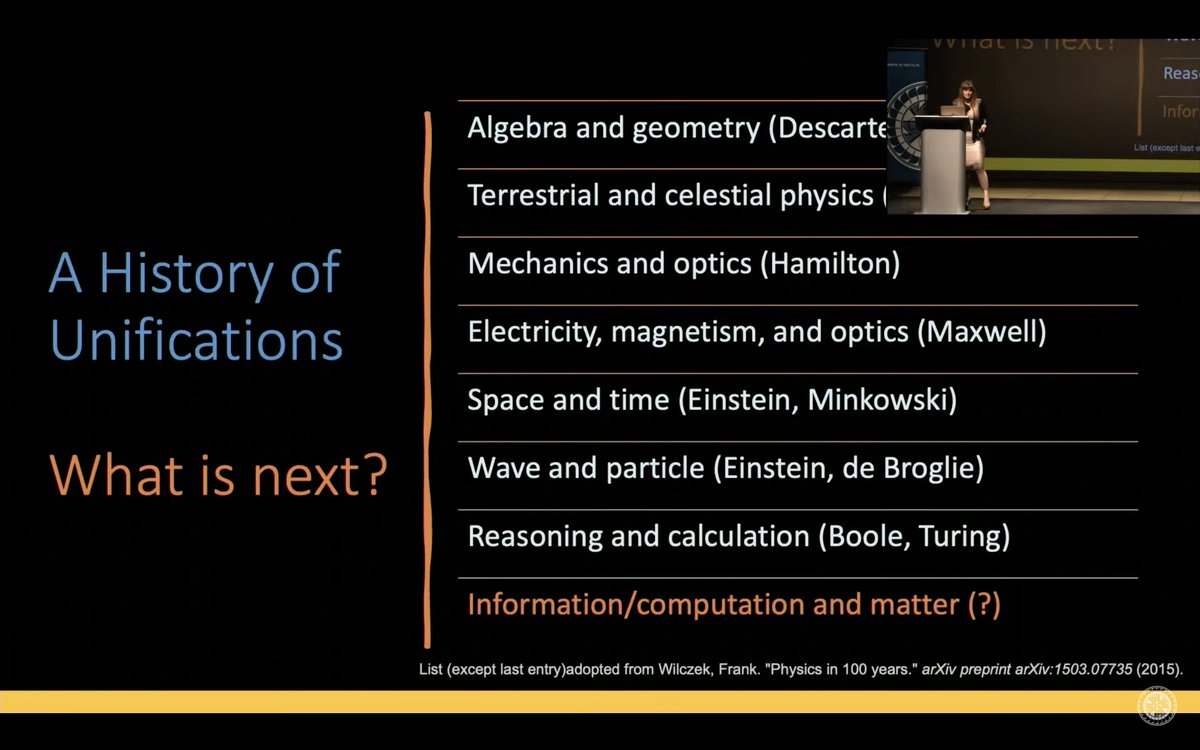
.@Sara_Imari maps the past and future of unifications in #physics, pointing toward laws of information and the possible (including both general/universal constraints true at any time as well as the limits at a given moment, what Stuart Kauffman called "The #AdjacentPossible"): 



"There's been this long and sordid relationship between #physics and #mathematics. We don't know which is more fundamental. Do we just embody abstractions? Why do the laws of mathematics correspond to the physical world?"
- @Sara_Imari on #MaxTegmark & #NeoPlatonism
- @Sara_Imari on #MaxTegmark & #NeoPlatonism

"Why do some things & not others exist? This is a question that #physics is not prepared to address. I think the closest we get is with #Darwin's Theory of #NaturalSelection. Some things exist on our planet but not all; we don't have all possible forms of organism."
#contingency

#contingency


"#Newton saw the universe as governed by laws imposed from outside [whereas] #Darwin saw the universe itself as a process in motion."
"You're actually a lineage of information across time, through a human life. What is continuity about you is not the atoms."
- @Sara_Imari

"You're actually a lineage of information across time, through a human life. What is continuity about you is not the atoms."
- @Sara_Imari
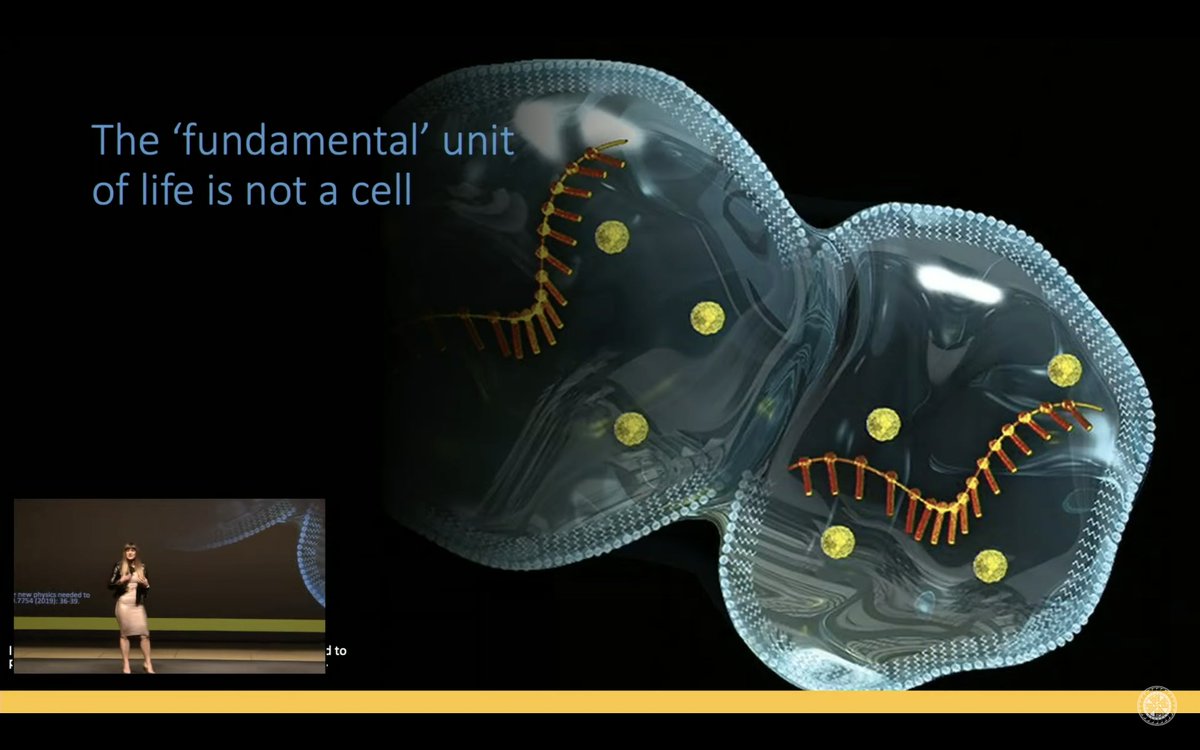

.@Sara_Imari nods to "The Information Theory of Individuality" by Krakauer et al, as well as @stephen_wolfram's research, @DavidDeutschOxf & Constructor Theory, and her work with @leecronin and others on #AssemblyTheory as promising avenues of unification:
link.springer.com/article/10.100…

link.springer.com/article/10.100…

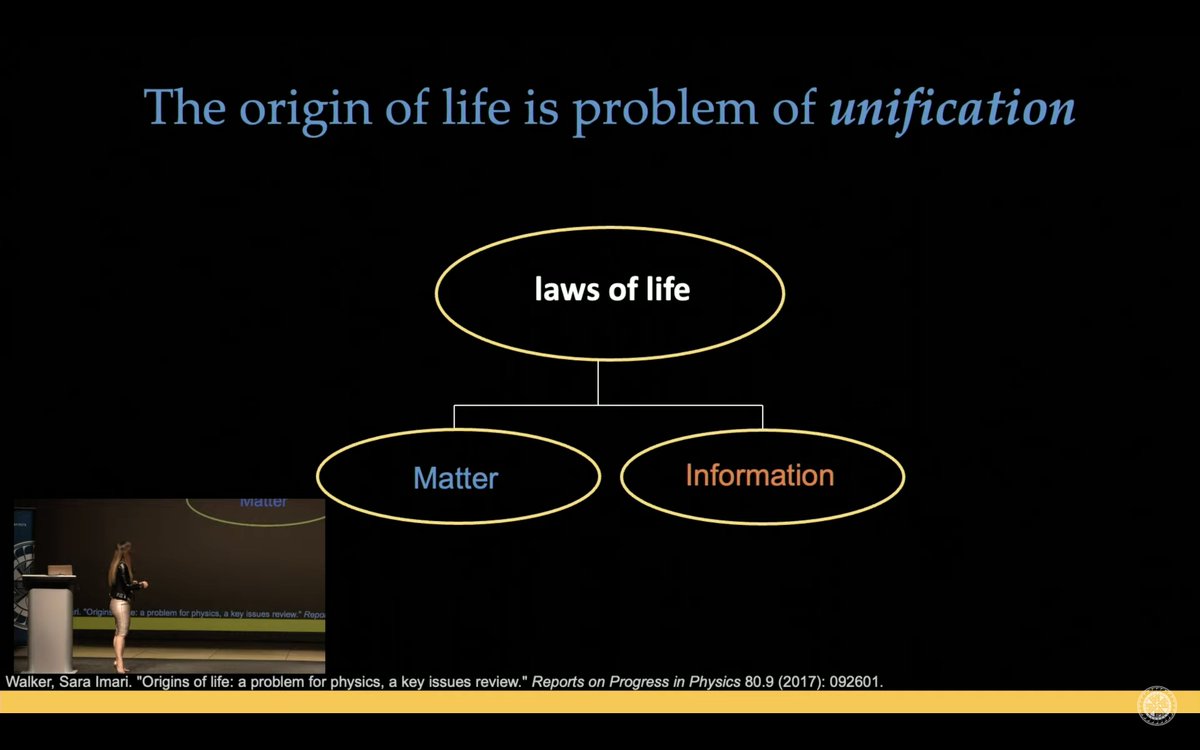
"I have been accused of #scientism, which people say is
an over-belief in #science — but I think it's not that; it's actually an over-belief in the power of our current scientific #explanations."
- @Sara_Imari on epistemic humility & #astrobiology
an over-belief in #science — but I think it's not that; it's actually an over-belief in the power of our current scientific #explanations."
- @Sara_Imari on epistemic humility & #astrobiology
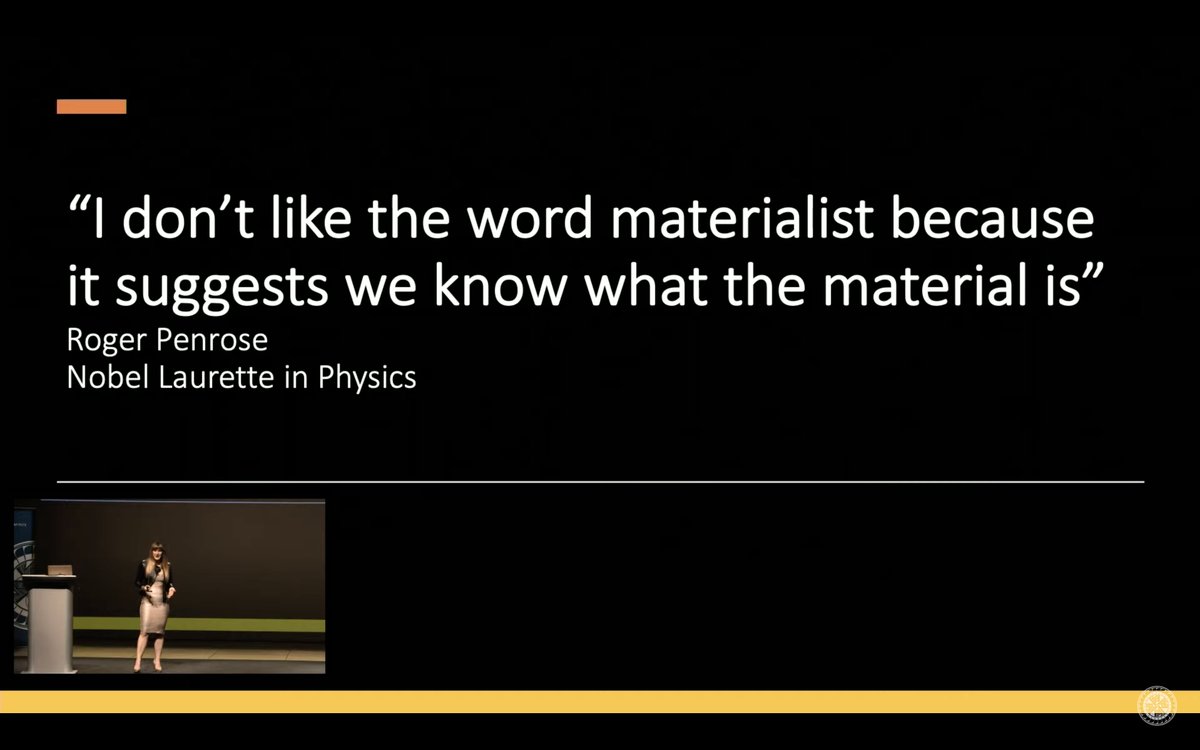
"I think #mathematics and #technology are far too abstract. People think math was discovered; I think it was invented by human minds. ... If we want to think about the physics of the #possibility space, I think we need to turn to #molecules."
- @Sara_Imari on #AssemblyTheory
- @Sara_Imari on #AssemblyTheory

"If you want to solve the origin of life, it's like a #search problem. ... The interesting thing is that chemical space is absolutely huge. Some of the #chemicals produced by our #technology, you have to know what you're doing to create them, and now we rely on AI."
- @Sara_Imari
- @Sara_Imari

"If you want a theory that can explain both the origin of life & help in the search for #alien life, you need a theory of #chemistry, & chemistry is the first place where we see this combinatorial explosion."
- @Sara_Imari
#AssemblyTheory
@NASAAstrobio @leecronin @not_rollergirl
- @Sara_Imari
#AssemblyTheory
@NASAAstrobio @leecronin @not_rollergirl

"The way we talk about things in #AssemblyTheory is that everything you observe is a coordinate in 'Assembly Space.' So I'm not '@Sara_Imari' ... Every observed structure has a particular assembly pathway telling you about that thing as a process in time."




"What we're saying with #AssemblyTheory is that there are causal #constraints based on what has come before...the length of #time limits what can come next. It helps us explain not just what exists, but what can [in terms of] the causal #history."
- @Sara_Imari on #Evolution
- @Sara_Imari on #Evolution

"#Satellites are interesting not because they're a one-off event but because we have the knowledge to create them again and again."
- @Sara_Imari on using #MassSpectrometry and #AssemblyTheory for life detection in outer space


- @Sara_Imari on using #MassSpectrometry and #AssemblyTheory for life detection in outer space
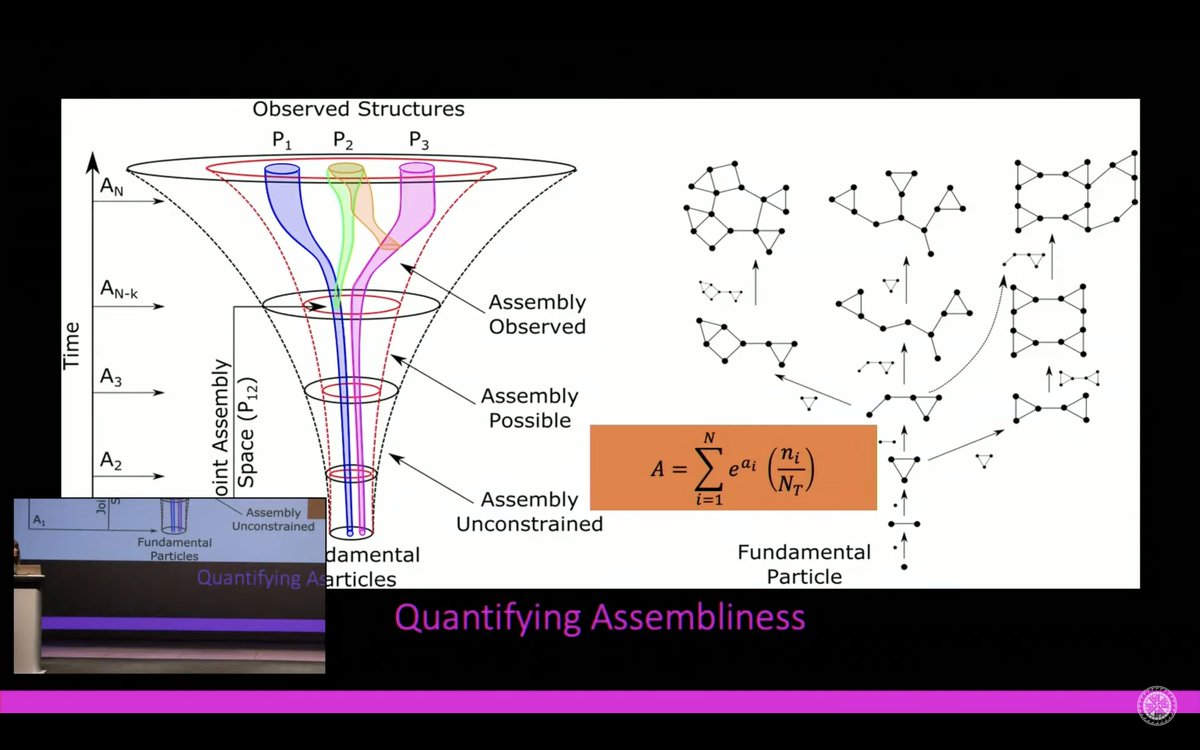

"Theories are important, but so is the pace of technology with respect to those theories. What are we doing know that will allow us to see alien life? ... What we're doing now is outsourcing how we *think* to technology."
- @Sara_Imari on #AI & #Astrobiology
- @Sara_Imari on #AI & #Astrobiology
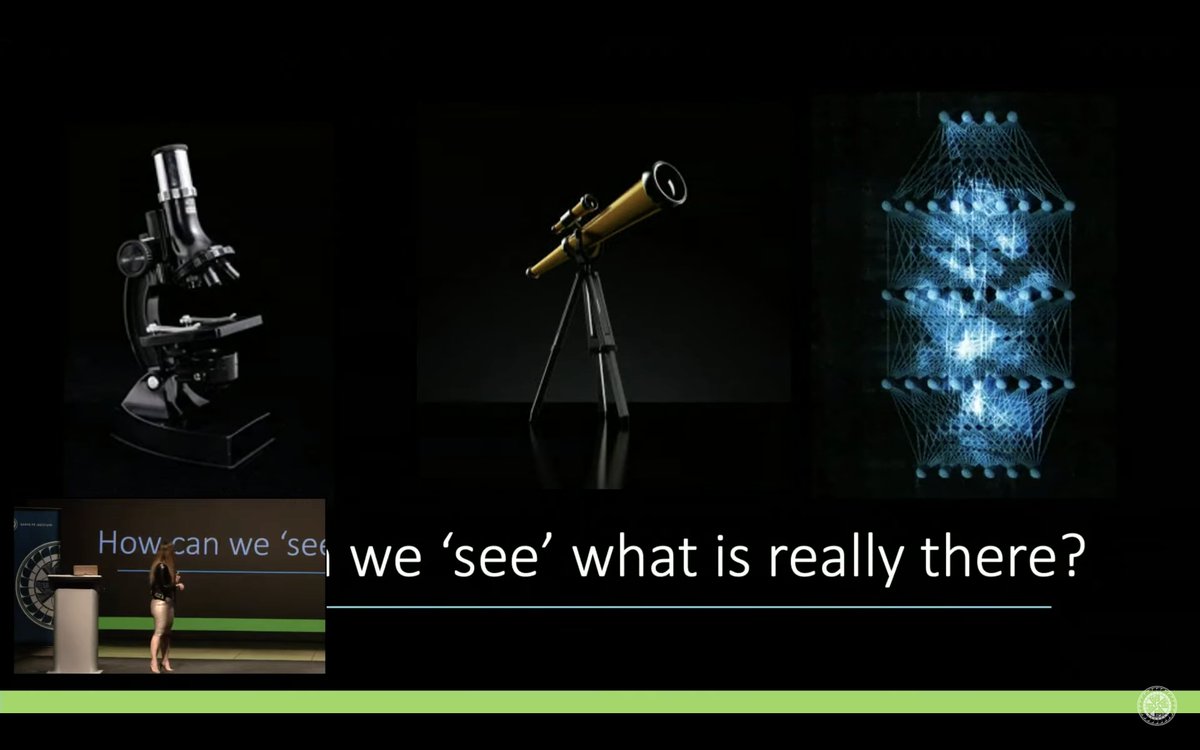
"We built a #BigBang simulator to see the origin of the cosmos; we need to build a Planet Simulator is see the origins of life, and 'grow alien life' here on Earth. The crucial data cannot be obtained until we have a theory that tells us what to look for."
- @Sara_Imari

- @Sara_Imari


• • •
Missing some Tweet in this thread? You can try to
force a refresh



